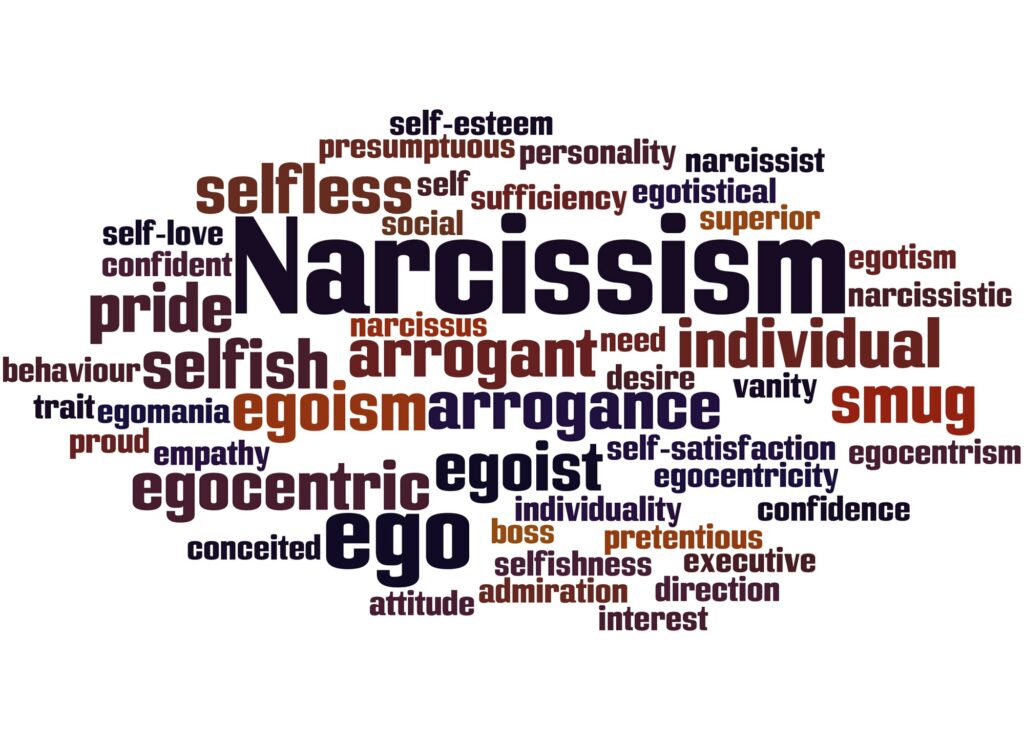When A Narcissist Calls You A Narcissist
Having a relationship with a narcissist can be very emotionally draining. They often use abusive tactics to control their partners and then claim to be the real victims in the scenario. It is also worth noting that they are aware of their narcissistic behavior but don’t find anything wrong with it. One of the many narcissistic traits an individual may possess is a sense of entitlement. It can be weird when a narcissist calls you a narcissist. They are also found to be self-absorbed and extremely sensitive towards criticism which makes it utterly difficult for their partners to maintain relationships with them. It is quite common among narcissists to blame their partners for the things they do wrong themselves. Some may even go as far as calling their partners ‘narcissists’ instead.
It is crucial to understand the difference between an arrogant individual and a narcissist. Because narcissism is not only a personality trait but is also a personality disorder famously known as Narcissistic Personality Disorder. An individual can only be given this diagnosis by qualified professionals like psychiatrists, psychologists, etc. after performing an array of psychometric assessments. And most of the people suffering from the said personality disorder seek treatment for depression, anxiety disorders etc. The inability to self-reflect makes it even harder for narcissists to take the road to recovery.
But all the while their partners bear the brunt of their narcissistic rage because narcissists are charming and highly manipulative individuals. But they have fragile egos and delicate self-esteem, they are full of insecurities beneath their charming facade.
Narcissistic Personality Disorder

Most individuals can show narcissistic behavior or attitude at some point in their lives but not all of them can be considered narcissists. It is crucial to understand the difference between a personality trait and a mental disorder.
Narcissistic personality disorder can be classified as a mental disorder in which a person shows an array of problematic thoughts and behavioral patterns which mainly consists of an inflated sense of self-importance, a continuous desire for excessive attention, and external validation, devoid of empathy, distressed relationships, etc. Narcissists are known to charm their way into people’s lives. They can be delightfully attractive and ooze confidence. Though this is not the case with all types of narcissists.
Signs And Symptoms Of Narcissistic Personality Disorder

Signs and symptoms of narcissistic personality disorder and the severity of symptoms vary. People with the disorder can:
- Have an exaggerated sense of self-importance
- Have a sense of entitlement and require constant, excessive admiration
- Expect to be recognized as superior even without achievements that warrant it
- Exaggerate achievements and talents
- Be preoccupied with fantasies about success, power, brilliance, beauty or the perfect mate
- Believe they are superior and can only associate with equally special people
- Monopolize conversations and belittle or look down on people they perceive as inferior
- Expect special favors and unquestioning compliance with their expectations
- Take advantage of others to get what they want
- Have an inability or unwillingness to recognize the needs and feelings of others
- Be envious of others and believe others envy them
- Behave arrogantly or haughtily, coming across as conceited, boastful and pretentious
- Insist on having the best of everything — for instance, the best car or office.
- Have significant interpersonal problems and easily feel slighted
- React with rage or contempt and try to belittle the other person to make themselves appear superior
- Have difficulty regulating emotions and behavior
- Experience major problems dealing with stress and adapting to change
- Feel depressed and moody because they fall short of perfection.
- Have secret feelings of insecurity, shame, vulnerability, and humiliation.
Why Do They Behave The Way They Do?

Shame
Feelings of intense shame can lead to narcissism. The individual may or may not be aware of the shame but as mentioned earlier narcissists deal with low and fragile self-esteem, and to cover it up they try to appear as someone who is extremely confident and perfect in all aspects and they use it as a defence mechanism against their shame.
Personality and genetics
An individual’s personality and genetics play a very important part in the onset of narcissistic personality disorder. Being born to narcissistic parents or being born with an oversensitive temperament can increase your chances of developing a full-blown disorder later in life.
Childhood Trauma
People diagnosed with narcissistic personality disorder often have a difficult childhood. They may either have overindulging parents or very neglecting ones. Usually, the children with parents who want to fulfill their dreams through their children or the parents who simply don’t care, are more likely to develop a narcissistic personality disorder. They might even suffer abuse in their childhood. Excessive praise and excessive criticism or total neglect are some of the responsible factors in parenting for narcissism.
Emotionally Abusive Tactics Used By Narcissists

- Gaslighting: Gaslighting is one of the most actively used tactics by narcissists. It is when the abuser lies to the victim about a certain event and tries to make the victim doubt his perception and sanity. It makes the victim doubt his memory about how the event turned out to serve the agenda of the abuser.
- Projection: This particular emotional abuse tactic of projection is used by the abuser to impose their issues onto the victim as if he is the one creating problems and making life difficult for the abuser. This is the reason why they will call you a narcissist.
- Blame shifting: When a narcissist is losing control in an argument, blame-shifting may come in handy to regain that control and power. They have difficulty taking responsibility for their flaws so shift it to other people. When you confront a narcissist they will shift the blame of their wrongdoings on either you or someone else.
- Guilt-Tripping: Guilt-tripping is when someone tries to point out their efforts while belittling your own. This emotional abuse tactic is quite passive-aggressive and is often used to make the other person change their actions or behaviour. A narcissist can make you feel guilty for choosing yourself first over him because, in his worldview, he is always superior and deserves everything. According to them, it is always your fault and never theirs.
- Silent Treatment: It is a form of stonewalling. Narcissists use it as a way to punish the people who didn’t behave in the way they wanted. It is only another way for the narcissist to manipulate, blame and assert control on the victim. It is a highly effective passive-aggressive tool for the abuser to cause emotional distress to the victim.
Ending The Relationship When A Narcissist Calls You A Narcissist

- Set clear and healthy boundaries: Establishing healthy and clear boundaries will help you move on from the toxic relationship. And you will feel less accountable for their actions, behavior, and emotions.
- Seek professional help and join a support group: Talking to a professional therapist can be an extremely cathartic and helpful experience. It goes a long way to have a safe place to share your experiences and work on your self-esteem. It will also be helpful to learn to process your emotions and manage them better.
- Focus on yourself: Nurture yourself and give yourself the time needed for the healing process. Take care of your body and mind. Meditate to clear your thoughts.
- Beware of the manipulation: They may try to punish you by quickly moving on with someone else. Or even beg you to come back but beware of these types of manipulation tactics. Narcissists don’t usually have the empathy to feel other people’s pain and they aren’t compassionate either.
- Strictly stay away: When you leave the relationship make sure to have no or only necessary contact with the narcissist. You may have the urge to just talk it out but remember your ‘why’.
- Don’t blame yourself: They may blame you for choosing yourself over the toxic relationship but you must support yourself and do not take the blame. Your decision to improve your life is your right.
- Prepare yourself for retaliation: Retaliation is always a possibility with narcissists. It may take the form of verbal and emotional abuse. Use your knowledge about their behavior and prepare yourself for it.
Conclusion
If you notice a person is a narcissist, it doesn’t mean anything about you. They are insecure and make accusations toward others. When this happens, tell them they are being “narcissistic” and to stop talking to you. If they reach out again, ignore them because there’s no point in arguing with pathological liars who don’t care about anyone but themselves. You can also confront the narcissistic person by asking what specifically makes him/her think they’re so terrific–most likely he will back off quickly when challenged head-on.
That said, be careful how much time you spend around such a person because if he/she has any degree of power over you, they’ll slowly take advantage and try to control everything so that you do what they want and not what’s good for you. Some narcissists actually do have the ability to charm people and get others to fall in love with them which is why it can be hard to detect a narcissist early on. If you’re unsure, ask them to tell you about themselves and see if they can give you details about who they are without asking the same question later on–narcissists will quickly turn things around on you by doing this because it makes them feel superior to be asked questions instead of answering them. We hope that you now know how it feels when a narcissist calls you a narcissist.


